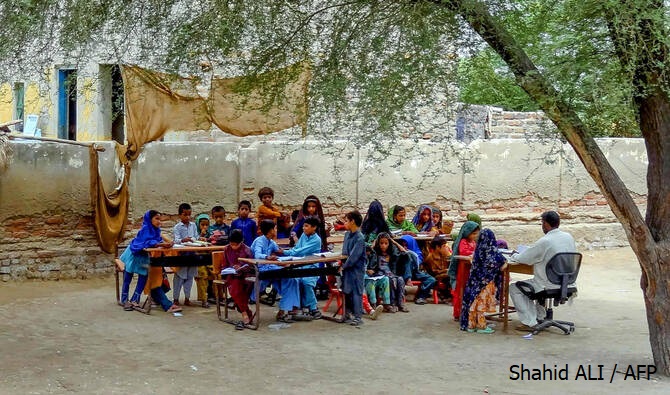
Pakistan Shuts Schools Amid Extreme Weather Conditions
Due to climate change-induced extreme weather events, schools across Pakistan have been forced to close. Authorities state the closures aim to protect children from health risks caused by heatwaves, toxic smog, and unusual cold spells.
In Punjab, temperatures in May soared to as high as 45°C (113°F), prompting many provinces to shorten school hours and declare early summer vacations. Bella Raza Jamil, an education advocate based in Lahore, explained that students have long been exposed to intense heat and smoke, and school closures are necessary for their safety.
Education Access and Learning Gaps
According to government statistics, nearly one-third of Pakistani children of school-going age—over 26 million—are out of school. Furthermore, 65% of children up to age ten are unable to read age-appropriate materials. In the past, schools were also closed for two weeks in November due to air pollution and for a week in May because of extreme heat.
This year alone, schools remained closed for three weeks in January due to severe cold, and they will be closed for two weeks in May because of extreme heat. In Balochistan Province, extreme May temperatures have forced school closures for three consecutive years. Despite growing demands from parents in Sindh Province, some officials continue to oppose school closures related to climate change.
Health and Safety Concerns for Students
“In this weather, parents are hesitant to send their children to school,” said Sadiq Hussain, a principal at a local private school. Dost Mohammad Danish, General Secretary of the All Sindh Private School and College Association, noted that seasonal complications are harming children’s physical and mental well-being.
Teachers, parents, and education experts agree that school calendars and exam schedules need to be revised in light of ongoing climate disruptions.
World Bank-Funded Solutions and Disparities
Ijaz Farrukh, a senior education expert at the World Bank, emphasized that climate-related issues are reducing students' learning time. In Sindh Province, well-equipped schools funded by World Bank loans are being constructed, providing students with a protected learning environment.
However, many rural areas in Pakistan still face infrastructure damage caused by the devastating floods of 2022. In those locations, children are often forced to study outdoors under unsafe and unstable conditions.


